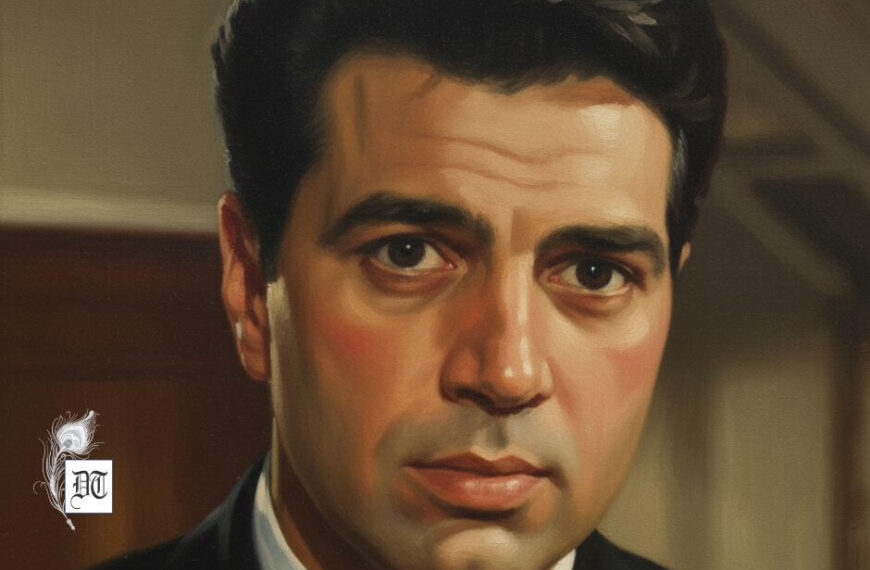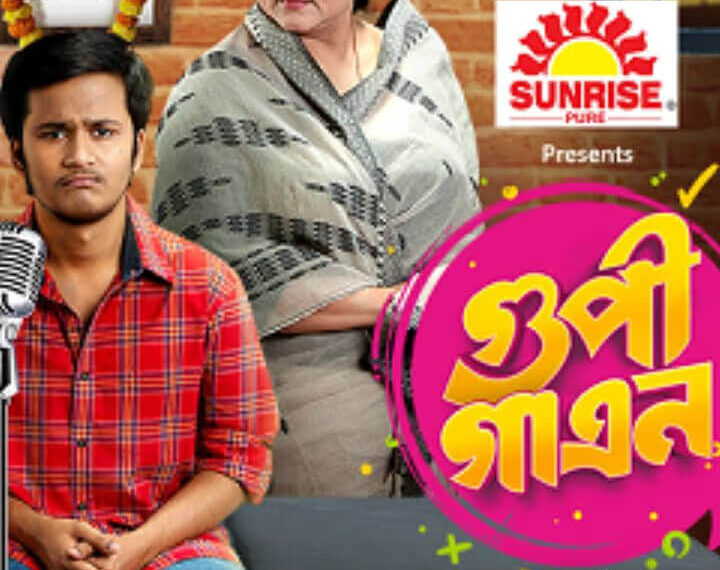Sanchaari organised a three-day cultural extravaganza, in Allahabad, the second such meet in over a year. It was a congregation of the intellectuals, litterateurs, art, and music lovers, along with the city’s glitterati. Two stalwarts from the cine industry, Mahesh Bhatt and Muzaffar Ali, and prominent Hindi poet, Ashok Chakradhar, attended the three-day festivities. Here’s a report by Sehar, exclusively for Different Truths.
Sanchaari’s three-day Allahabad Sanskirtik Parv began on December 2, 2016, with excitement and fervour. Art, music, literature and history were showcased.
 The inaugural function was attended by the Chief Justice Dilip B Bhonsle of the Allahabad High Court. During his keynote address, the Chief Justice shared a few kind words of appreciation for the hard work put in by Team Sanchaari for revisiting the culture of Allahabad and reviving it in a unique manner.
The inaugural function was attended by the Chief Justice Dilip B Bhonsle of the Allahabad High Court. During his keynote address, the Chief Justice shared a few kind words of appreciation for the hard work put in by Team Sanchaari for revisiting the culture of Allahabad and reviving it in a unique manner.
The organisation Sanchaari in a little more than a year has been able to organize events that not only touch the hearts of a nostalgic Allahabadis but also encourages the young generations to reconnect with its city’s culture and history.
The first session of the day stirred up an atmosphere of nostalgia and fond memories, when Vivek Priyadarshini and Prof. Smita Baghuna Agarwal enthralled the audience with the ghazals of Firaq and Nirala.
“Behtar ye hai…..mehfil e’ Nishaad ki; Baandho na nao is sthaan bandhu puchchega sara gaanv.”
The atmosphere in the premises got was charged with the entry of Sanchaari’s favourite team member, Mahesh Bhatt, who flew all the way from the city of dreams, Mumbai to attend the function. His conversation with Dr. Saba Mehmood Bashir was candid and gave many insights into his exceptional work and intriguing thought process.
With camera’s flashing and warm hugs, Bhatt bid goodbye to the city promising to be back soon again because he feels at home when in Allahabad.
The third session of the day was an in-depth discussion on the Progressive Writer’s movement with speakers like Rakshanda Jalil, Prof. Fatmi and Alok Rai, who spoke about the famous people who joined the movement and made a mark in Indian literature with their profound works. They began with Munshi Prem Chand and brought in to discussion the contribution of progressive writers like Ismat Chughtai, Rashid Jahan and Sadat Hasan Manto. They also focused on the concept of realism reflected in the works of above-mentioned writers.
During the fourth session on day one, Dharmesh Chaubey, Nikhat Gandhi and Saba Naqvi expressed their views on Changing Dimensions in New Perspective on Feminism. The patriarchal influence and control over the female world were the focal points of their discussion.
Prof. Smita Agarwal, Yash Malviya and Shlesh Gautam brought to light the changing trends in poetry writing in the fifth session. Prof. Agarwal said slam poetry and digital poetry have brought a revolution in the reign of poetry by democratising the art. Later Prof. Agarwal in her ever so melodious voice re invoked the memories of Akbar e-Illahabadi by singing by Hungama hai kyun barpa thodi si jo…
Last but not the least, Prof. Neelam Saran Gour read some excerpts from Akbar and Jaanki, her forthcoming book which represents Akbar and Janki Baai’s relationship in different phases of their lives.
The second day began with an interactive session that brought forth the exceptional relation that law and literature has shared over decades and centuries. The session was a unique discussion amongst three young lawyers of the Allahabad High Court, Safdar Kazmi, Devaang Sawla, and Tanisha Jehangir Munir, later joined in by Sankalp Singh. During the session, Advocate Safdar said that with the evolution of time law and literature are simultaneously running to reach the same destination. According to another young lawyer, “Literature is an expression of human empathy whereas law is the expression of the highest order”. The discussion was followed by an interesting open mic session during which Justice Pankaj Naqvi, Prof. Smita Agrawal and others putting forward their views and a question answer round with the panellists.
A sweet flavour of Urdu and lyrical poetry added the right taste to the morning of December 3, with a recitation of Nazm by Advocate Tahira Kaazmi titled ‘Paan ki Fariyad’, an autobiography of Paan (betel leaf).
The winter afternoon became a melodious one when the very talented Anirudh Verma moved his fingers on his piano. A pianist and expert in Indian classical ragas, western music and contemporary jazz, the audience swayed along with his music.
The evening session began with the camera taking us back to the glorious past of Indian music. A documentary film entitled ‘The Other Song’ by Saba Dewan was screened which traces the lost traditions and culture of courtesans of north India. The story journeys across Varanasi, Lucknow and Muzaffarpur (India) through a popular song playing in the background “Phool gendwa na maro, lagat karejwa pe chot” rendered by one of the finest and greatest singers of Hindustani classical music Rasoolan Bai. The documentary displayed the decline of a great art form, which later came to be identified as symbols of sexuality and eroticism. The film maker, Saba Dewan was also present during the screening.
The highlight of the second day took the audience a little more into history, art and culture with artists performing the lost art of storytelling, Daastangoi. A sixteenth century Urdu oral story telling art form this art form till date never fails to enchant the audience and leave them somewhere in the past mesmerised . During this session, the dastaangodastaango (narrators) Rajesh Kumar and Rana Pratap created magic through the narration of stories on the stage.
The third and final day of the festival began with the heritage walk led by Asif Khan ‘Dehelvi’, a famous storyteller from Delhi. A student of history, his work addresses the historical stories hidden inside the monuments of the past.
The walk took the participants from to city’s old and historic lanes of Chowk – starting from Ghantaghar, Neem ka Ped, Yadgaare Hussaini Inter College and ending with the yummy breakfast in the famous Loknath ki Gali.
After the heritage walk, it was time for some eerie stories from the city’s favourite storytellers, Prof. Gour and Rashid Kamal. They narrated stories about ghosts, Jinns, witches. The ambience of the hall was filled with an air of eeriness, horror and mist.
“Fair is foul and foul is fair/ hover through the fog and filthy air.”
The evening had a special guest from Lucknow, Muzaffar Ali, who spoke at length about periodical films and the art of filmmaking in a candid conversation with Prof Fatmi. The session ended with the launch of the award-winning book ‘Daggers of Treason’, written by Niraj Srivastava, who also read some fascinating excerpts from his book before the launch. Renowned Hindi poet, Ashok Chakradhar brought with him a treasure of Hindi compositions that simply left the audience with a wide smile on their face and a heart full of happiness and delight.
The three-day festival came to a splendid end with a thanksgiving by the secretary of Sanchaari, Samina Naqvi.
(With inputs by Dr Pallavi Chandel, Dr Rashmi Jain, and Elwin).
©Sehar Siddiqui
Photos by Businet.


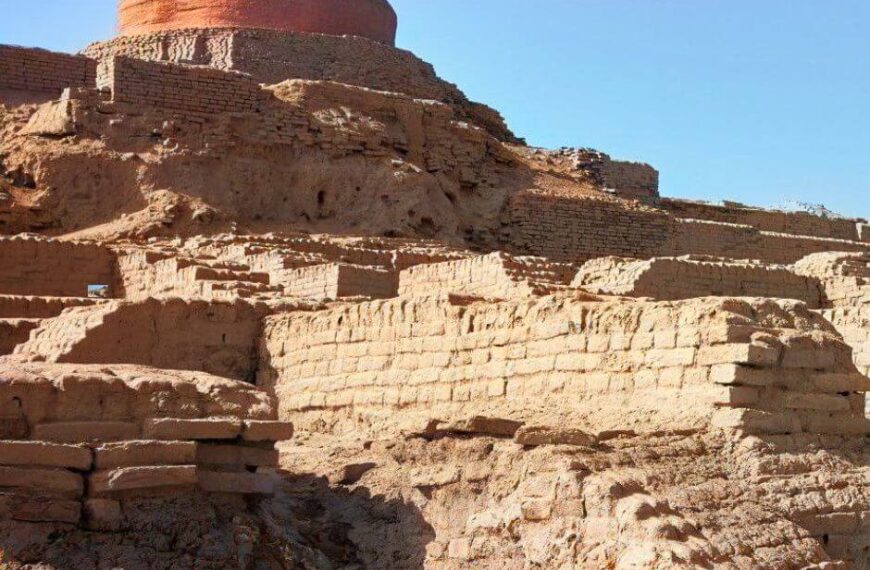
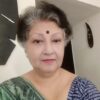 By
By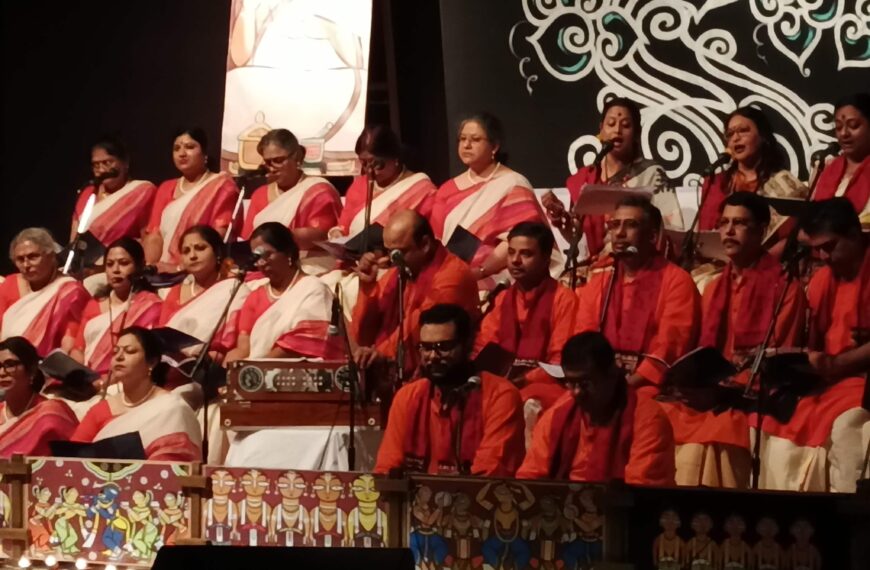
 By
By